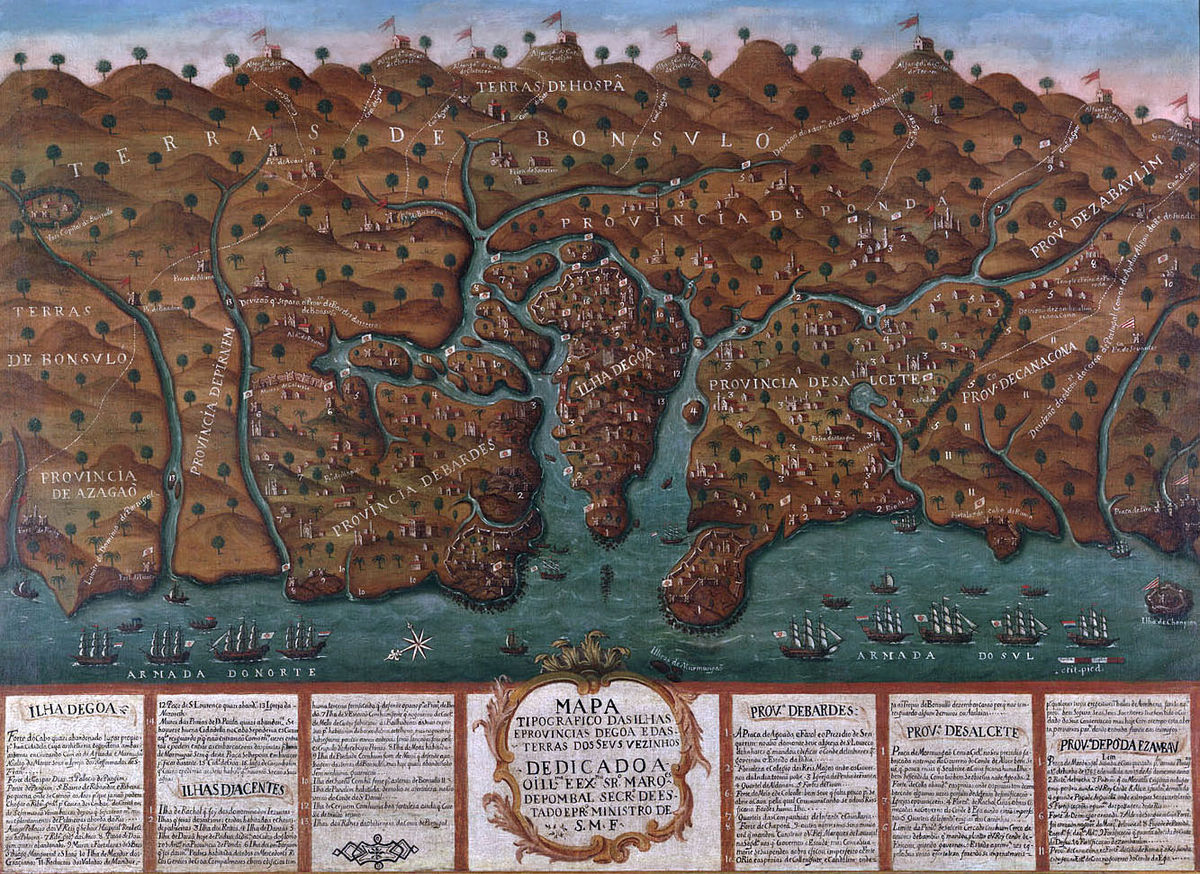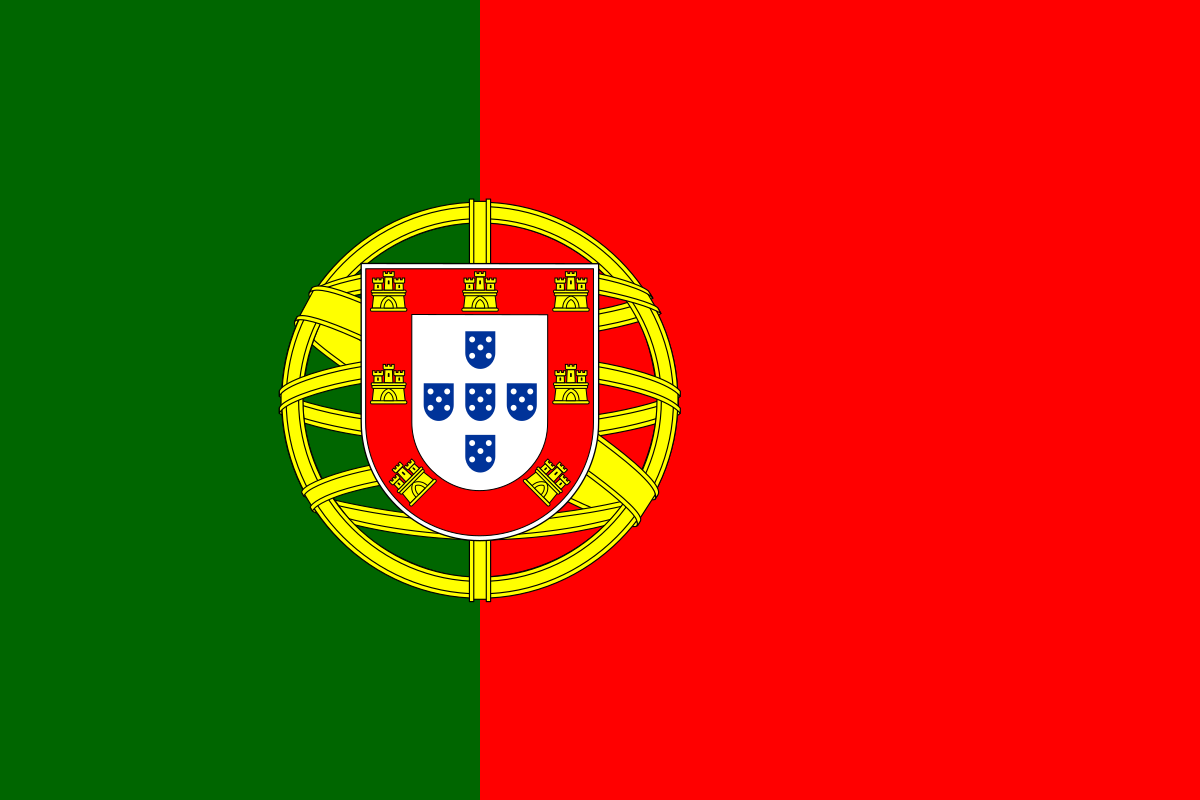
Maratha–Portuguese War (1683–1684) - Wikipedia

Sambhaji - Wikipedia
In otl, the Marathas almost captured Goa in 1684 before the Marathas were forced to return to the status quo regarding Portugal and forced to defeat the Mughals in 1684. If the Marathas continued to Goa due to their proximity to Goa while ignoring the Mughal Empire, the Marathas might be (and could have been) able to capture Goa before the Portuguese colonial reinforcements and the advancing Mughals could arrive and defeat the Marathas. In this case, the Marathas would capture all of Portuguese India including Goa. The worst case scenario for the Marathas would be the Mughals trapping and defeating the Marathas at Goa, allowing the Maratha-Portuguese War to proceed as in otl but with more Maratha losses and weaknesses, although even such Maratha losses and weaknesses, especially with the potential loss of Sambhaji early and more Maratha troops, might leave the Maratha Empire unable to defeat the Mughals in the 18th century, the Maratha Empire more vulnerable to British colonialism and the Mughals stronger against the Marathas and sovereign, although not necessarily against the British due to British technology and divide and conquer tactics. Even then, the Mughals being sovereign instead of being puppetized by the Marathas might help the Mughals' survival and independence against the British and the Marathas. And this assumes if the Mughals returned Maratha/ Portuguese Goa to Portugal.
If the Mughals took Goa from the Marathas without returning Goa and Portuguese India to Portugal, the Mughals might have to fight the Portuguese. Assuming the Mughals defended Portuguese India successfully for the Mughals without losing or returning Portuguese India to Portuguese rule, the Mughals would annex Portuguese India and avoid having to fight the Portuguese and Marathas simultaneously in India in 1693 as the Marathas could only seek refuge in Maratha territory instead of Portuguese territory as in otl by 1693. This would make it easier for the Mughal Empire to defeat the Maratha Empire more completely (without Portuguese support for the Marathas in 1693) and prevent the Mughal Empire from being puppetized by the Marathas in the 18th century and from being colonized by the British in the 19th century (the Maratha Empire being weaker than otl would make it more vulnerable to British colonialism by leaving it with less resources that could be taken from itself and the puppetized Mughal Empire to help it resist the British, plus, British divide and conquer tactics and technology would prevent the Mughal and Maratha Empires from combining successfully against the British). Still, it would make the Mughals more well known than otl by having the Mughals end Portuguese rule in India, by allowing the Mughals to survive without being turned into a protectorate by the Marathas and in the best case scenario, by butterflying British colonialism of ex-Mughal India. In addition, the temporary British occupation of Portuguese India would be under different circumstances since Portuguese India would have to be taken by the British from the Mughals instead of from Portugal.
If (ex-) Mughal India still ended up being colonized by Britain and the Portuguese didn't get back India from Britain, the Portuguese and other inhabitants of Portuguese India would experience British rule plus cultural, migration and culinary influences and vice versa instead of Portuguese rule plus cultural, migration and culinary influences and vice versa. Assuming the world wars still occurred in this scenario and allowing for Mughal India to be colonized by Britain, but the Portuguese didn't get back India from Britain, German and German-aligned non-living things and assets such as ships and businesses would be seized by Britain instead of Portugal in Portuguese Indian ports such as Goa or they might face internment, sinking or seizure elsewhere. After Indian independence, ex-Portuguese India would be part of an independent India automatically, butterflying the Indian Campaign against Portugal in ex-Portuguese India plus associated Indian and Portuguese losses in that campaign. The Mughal India being colonized by Britain and subsequent portions of this paragraph might need a butterfly net, though.

Portuguese India - Wikipedia
Note that Portuguese India (more precisely, Goa) also administered the Portuguese Empire from Mozambique eastwards, but the Mughals (substitute Mughals for Marathas if you like) would only want Portuguese India for themselves, as opposed to and not wanting Mozambique, Zanzibar, Mombassa, East Timor and Macau for the Mughals themselves.
Another possibility would be the Mughals not defending Goa for the Portuguese and from the Marathas without returning Goa and Portuguese India to Portugal, causing the Portuguese to lose Goa and Portuguese India as a whole to the Marathas, simply due to lack of Mughal support of Portugal against the Marathas or due to the Goan Inquisition. Assuming the Marathas defended Portuguese India successfully for the Marathas without losing or returning Portuguese India to Portuguese rule, the Marathas would annex Portuguese India and the Mughals would avoid having to fight the Portuguese and Marathas simultaneously in India in 1693 as the Marathas could only seek refuge in Maratha territory instead of Portuguese territory as in otl by 1693. This would make it easier for the Mughal Empire to defeat the Maratha Empire more completely (without Portuguese support for the Marathas in 1693) and prevent the Mughal Empire from being puppetized by the Marathas in the 18th century and from being colonized by the British in the 19th century (the Maratha Empire being weaker than otl would make it more vulnerable to British colonialism by leaving it with less resources that could be taken from itself and the puppetized Mughal Empire to help it resist the British, plus, British divide and conquer tactics and technology would prevent the Mughal and Maratha Empires from combining successfully against the British). Still, it would make the Mughals more well known than otl by having the Mughals end Portuguese rule in India, by allowing the Mughals to survive without being turned into a protectorate by the Marathas and in the best case scenario, by butterflying British colonialism of ex-Mughal India. In addition, the temporary British occupation of Portuguese India would be under different circumstances since Portuguese India would have to be taken by the British from the Mughals instead of from Portugal.
If (ex-) Mughal India still ended up being colonized by Britain and the Portuguese didn't get back India from Britain, the Portuguese and other inhabitants of Portuguese India would experience British rule plus cultural, migration and culinary influences and vice versa instead of Portuguese rule plus cultural, migration and culinary influences and vice versa. Assuming the world wars still occurred in this scenario and allowing for Mughal India to be colonized by Britain, but the Portuguese didn't get back India from Britain, German and German-aligned non-living things and assets such as ships and businesses would be seized by Britain instead of Portugal in Portuguese Indian ports such as Goa or they might face internment, sinking or seizure elsewhere. After Indian independence, ex-Portuguese India would be part of an independent India automatically, butterflying the Indian Campaign against Portugal in ex-Portuguese India plus associated Indian and Portuguese losses in that campaign. The Mughal India being colonized by Britain and subsequent portions of this paragraph might need a butterfly net, though.
With the Marathas in Portuguese India instead of the Portuguese or the Mughals, the Marathas would likely be able to and might need to avoid fighting the Mughals in 1683 to 1684. In this case, the Marathas might be able to defeat and annex or puppetize the Mughals, but more decisively and in the 17th century instead of the 18th century. This might be enough to help the Marathas in their wars against the Durranis and later against the British, butterflying British colonialism in (ex-) Maratha and Mughal India, especially since a stronger Maratha India would have more resources from itself to defend itself from Britain even without aid from its puppetized or annexed Mughal Empire due to the Mughals being unable to meaningfully aid the Marathas because of British technology and divide and conquer tactics. Having said that, it would make the Marathas more well known than otl by having the Marathas end Portuguese rule in India and in the best case scenario, by butterflying British colonialism of ex-Mughal and ex-Maratha India. In addition, the temporary British occupation of Portuguese India would be under different circumstances since Portuguese India would have to be taken by the British from the Marathas instead of from Portugal.
If (ex-) Mughal and Maratha India still ended up being colonized by Britain and the Portuguese didn't get back India from Britain, the Portuguese and other inhabitants of Portuguese India would experience British rule plus cultural, migration and culinary influences and vice versa instead of Portuguese rule plus cultural, migration and culinary influences and vice versa. Assuming the world wars still occurred in this scenario and allowing for Mughal and Maratha India to be colonized by Britain, but the Portuguese didn't get back India from Britain, German and German-aligned non-living things and assets such as ships and businesses would be seized by Britain instead of Portugal in Portuguese Indian ports such as Goa or they might face internment, sinking or seizure elsewhere. After Indian independence, ex-Portuguese India would be part of an independent India automatically, butterflying the Indian Campaign against Portugal in ex-Portuguese India plus associated Indian and Portuguese losses in that campaign. The Maratha India being colonized by Britain and subsequent portions of this paragraph might need a butterfly net, though.

Portuguese India - Wikipedia
Note that Portuguese India (more precisely, Goa) also administered the Portuguese Empire from Mozambique eastwards, but the Marathas (substitute Marathas for Mughals if you like) would only want Portuguese India for themselves, as opposed to and not wanting Mozambique, Zanzibar, Mombassa, East Timor and Macau for the Marathas themselves.
Last edited: